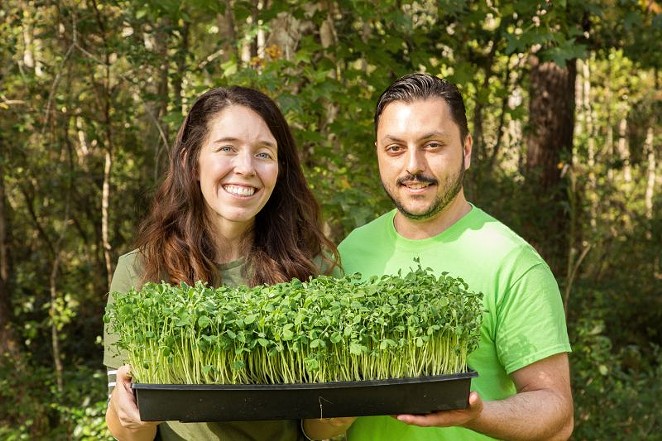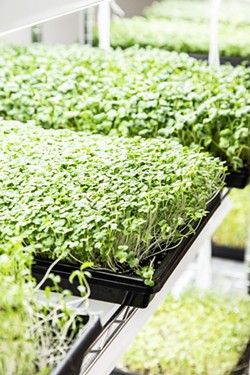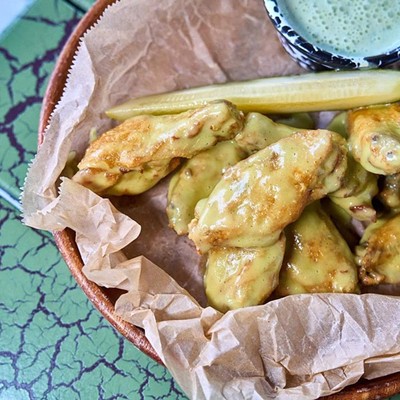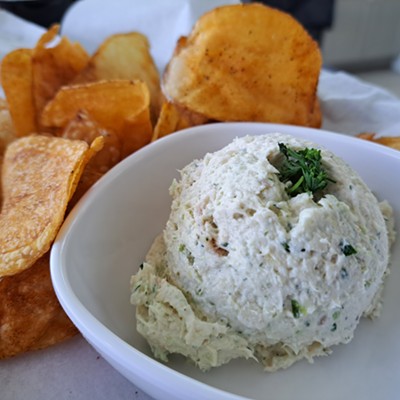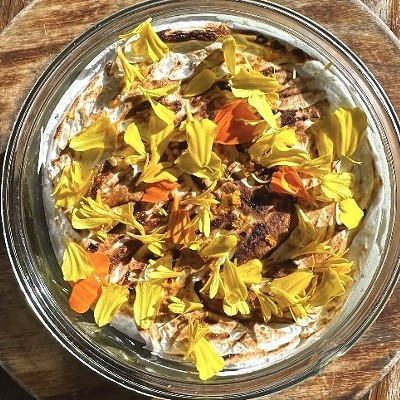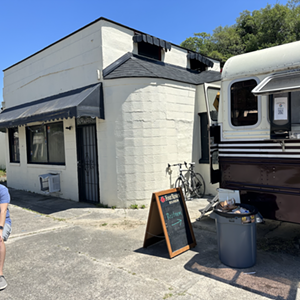HAVE YOU ever eaten at a restaurant and found tiny little leaves resting beautifully atop your finished dish?
Have you gone to the grocery store and spotted a container of what looks like miniature lettuce sitting next to the herb section?
For many non-chefs, they’re left wondering what in the world they’re eating.
In most grocery stores around town, those greens are wilted and lackluster, and other than finding them on a store shelf (on a rare occasion), it is almost impossible to find the miniature greens.
I’m referring to microgreens, the greens of vegetables that are harvested just before the vegetable’s true leaves develop. Microgreens grow between the sprout stage of a plant and the baby green stage of a plant.
The superfood is loved by food enthusiasts because they are extremely nutritional and packed with delicious fresh flavor.
There is one local farm that is helping give access to microgreens for Savannah and its neighboring cities: Ebenezer Greens. The urban farm started as a project for owners Angie and Chris Mee and has grown into our area’s local supplier for microgreens.
Ebenezer is considered an urban farm because everything is grown vertically within the confines of the Mee’s home. They have rows of shelves and ultraviolet lighting.
The farm is named after the region in which it is located: Ebenezer in Effingham County, a historic area of Georgia right outside Savannah.
“The town is called Ebenezer and part of Ebenezer Creek runs through our property behind the forest. This whole area is called Ebenezer and it’s where we got it,” Angie says.
Angie and Chris moved around before eventually settling in Georgia. Originally from Utah, the couple has lived all around the United States, including Illinois and Arizona.
As for how the urban farm began, it only opened once the family settled in the South. Angie says they love being in Savannah with their family but wanted to bring something to the community that we didn’t have.
The story goes like this:
“When we came down here we were a little disappointed in the lack of fresh food, so I was like, we have to do something because the produce at the store does not look that great, especially the lettuce, with all of the lettuce scares going around the country,” Angie says.
“I decided to grow our own. I was like, let’s grow our own greens. I was just going to do it for our family, something fresh always on hand, and I enjoyed doing it so much that I started growing more and more and delivering to some friends and a couple of restaurants.”
Because the original idea was to provide for her own family, everything done at Ebenezer is of the highest quality. While planting a fresh tray of dirt, Angie explains, “We use fresh clean dirt with every tray. It is mostly a coconut soil-based dirt. It does not have any animal biproduct in it or any animal fertilizer. It is a clean, organic mix.”
The result is organic greens that do not have the chance to be contaminated through contact with animal fertilizer. And by growing the greens within her home, the settings are controlled, and there is no need for pesticides. These greens are organic and healthy in every sense of the word.
Since microgreens are harvested before the plant is able to mature, the growth and turnaround is extremely quick. Each tray of greens needs approximately seven to ten days before it is ready to be sold.
Angie freshly plants around sixty trays per week. And even with a large stock of product now, Ebenezer has room to grow.
Currently they only use a portion of their farm space, leaving a few rows of shelf open. Part of Angie’s dream is to continue the farms grown, which means getting even more greens to the people.
Varieties include sunflower, cilantro, beet, arugula, radish, broccoli, kale, bok choy, mustard, wasabi mustard, basil, shisho, wheatgrass, raddish, pea, and many more greens.
Angie is constantly learning and adding to the varieties available through Ebenezer—easy to do when the crop grows so quickly.
As she gives me a tour of the farm, Angie explains, “After each tray is done and harvested, we compost everything. We have compost piles in the back. We wash and sterilize the trays after each round, and my kids help with that too.”
If you have ever tasted a microgreen as part of a composed dish, it is likely you do not recognize the strong individual flavor the tiny plant possesses. Each variety is like a compact bite of the plant it comes from.
The beet microgreens taste just like a raw, fresh beet straight out of the ground. The same can be said with almost every variety of microgreen. It’s why chefs and fancy restaurants love to include them on their menus.
Microgreens are not just a produce for the snooty and healthy. Ebenezer Farm believes that more than anyone else.
“We want to bring microgreens to the people, not just restaurants. We want people to realize that this could be part of their daily diet, and it is should be because it is a superfood. Some of them contain up to forty times more nutrients than the vegetable, so these little greens have much higher concentrations of all the vitamins and antioxidants that you get from the bigger vegetables,” Angie tells me.
You can find Ebenezer at the Forsyth Farmers Market, the Hilton Head Farmers Market, at restaurants around downtown, and through delivery to Savannah on Wednesdays. Ordering is easy. Give them a call, shoot a quick text or send a message through their Facebook page.

